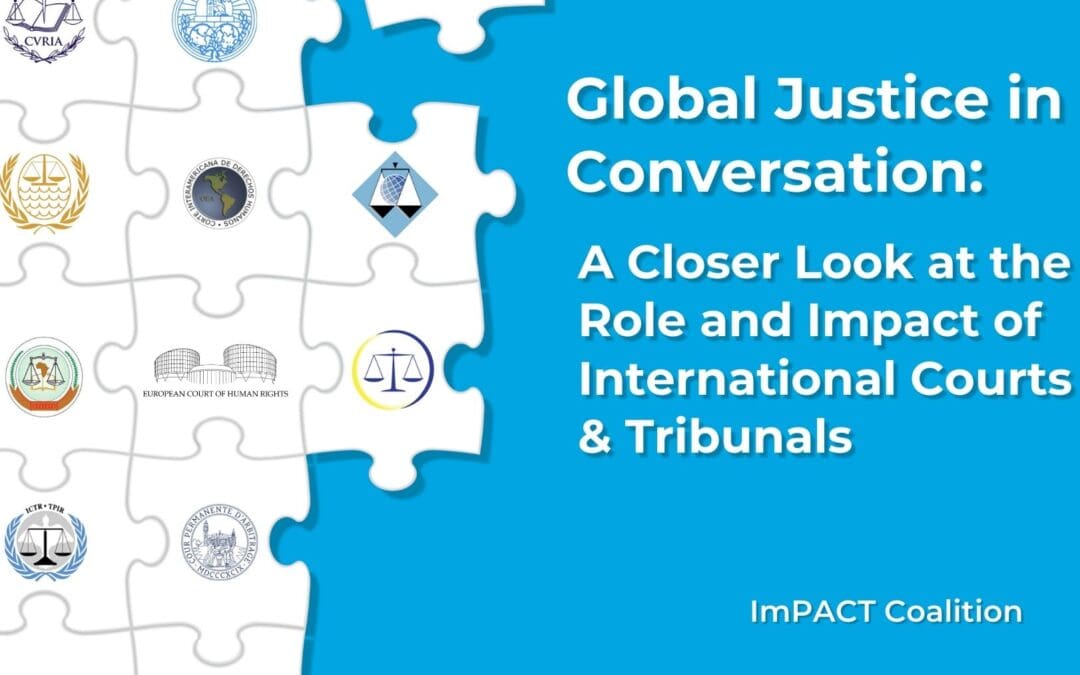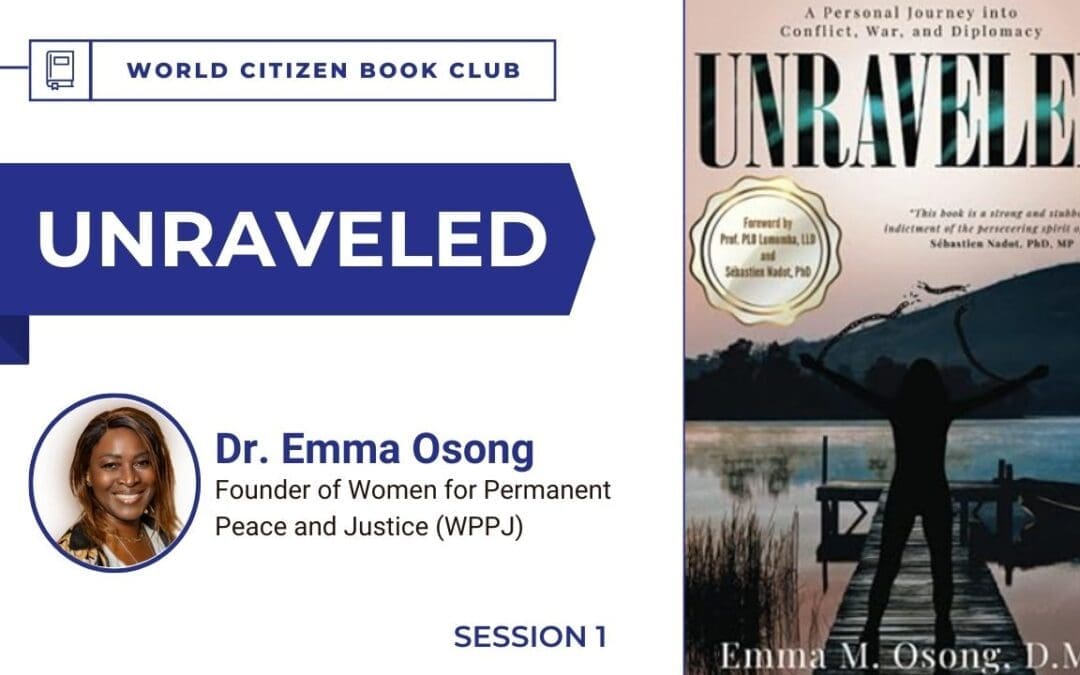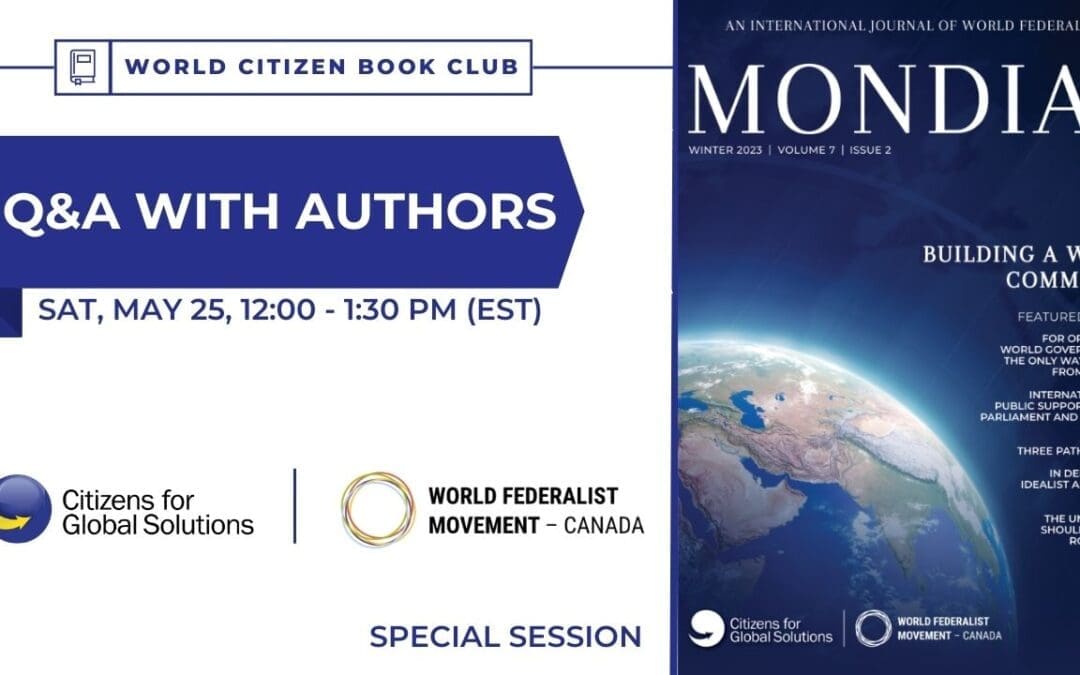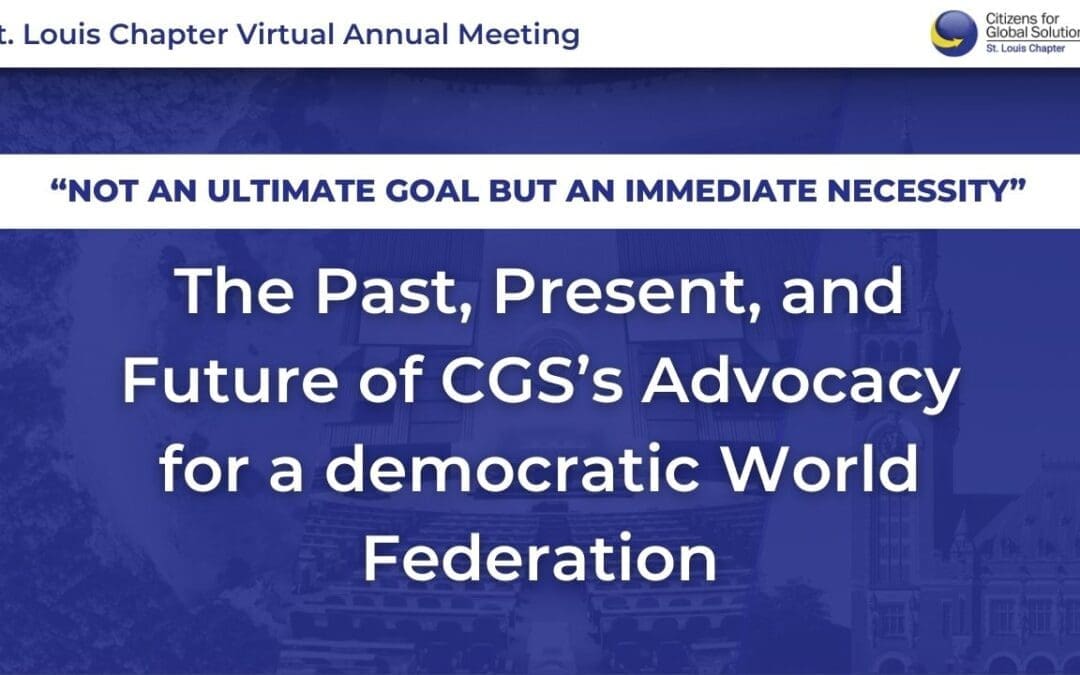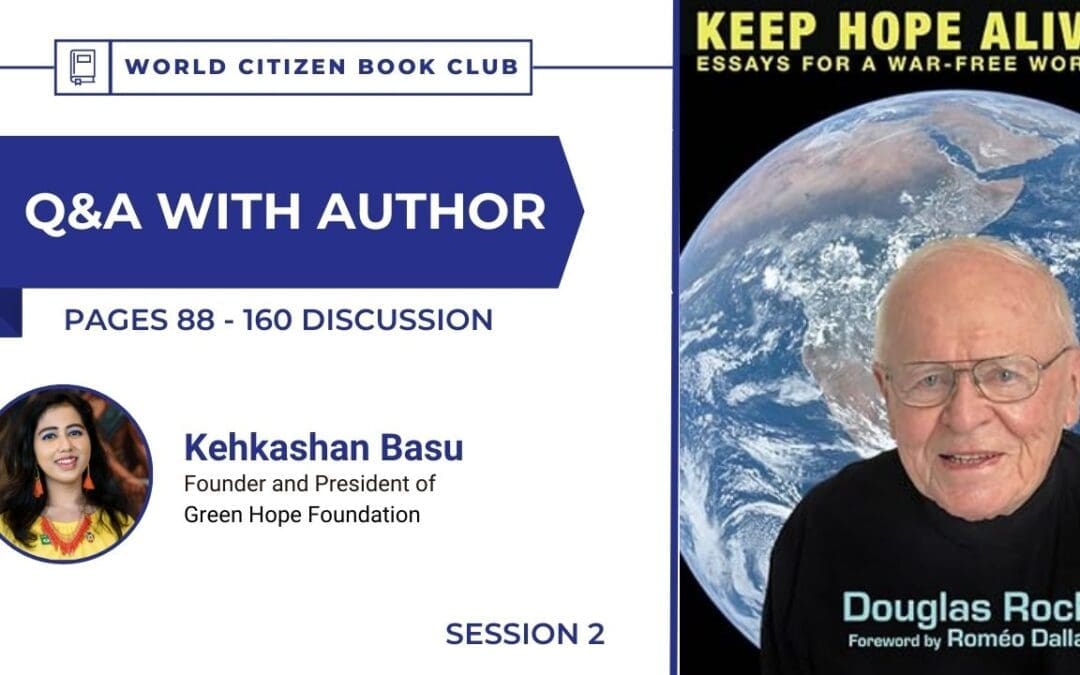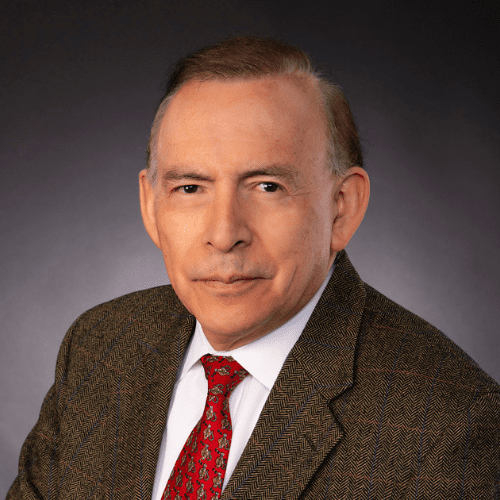
by CGS | Jul 18, 2024 | Past Event
The International Day of Justice, July 17, commemorates the day in 1998 when the Rome Statute was adopted establishing the International Criminal Court (ICC). Today, the ICC forms an integral piece of a complex and complementary global judicial architecture, joining treaty-based tribunals, regional institutions, and alternative methods of dispute resolution. At the heart of this framework is the International Court of Justice (ICJ), which was established in 1945 as one of the principal organs of the United Nations, and primary means for the pacific resolution of disputes between states.
This International Justice Week, watch Session I of the inaugural webinars in a series intended to take a closer look at these institutions and how they can effectively complement one another and domestic judicial systems.
In this session, we discussed Nuclear Nonproliferation and Disarmament: Lessons from the Asia-Pacific Region discussed how we will highlight the important role of the ICJ, why it has a surprisingly high success rate with regard to disputes that it adjudicates, examples of a few of the success stories of the Court and why all countries should move to accepting its compulsory jurisdiction.
Speakers:
Hon. Matt Robson (New Zealand). President, Aotearoa (NZ) Lawyers for Peace. Former parliamentarian with positions of Minister for Courts and Minister for Disarmament and Arms Control.
Dr. Penelope Ridings (New Zealand), Member of the International Law Commission.
Luis Roberto Zamora Bolaños (Costa Rica), Board Member, International Association of Lawyers Against Nuclear Arms. Human & Civil Rights Lawyer.

by CGS | Jul 13, 2024 | Past Event
Watch Session I with author, Dr. Emma Osong, and special Q&A; where we discussed her book, Unraveled: A Personal Journey into Conflict, War, and Diplomacy.
Dr. Emma’s new book called the “Unraveled” where two worlds collide in this emotional journey provides a blueprint on how to promote peace and justice amid times of war. Emma Osong’s world was turned upside down when her daughter Praxie was told she would never walk again. Faced with the traumatic circumstances of her daughter’s condition, Osong draws comparisons between her daughter and her war-ravaged country of origin, Cameroon. Detailing the events in Cameroon and the struggles of its people trapped in decades of tyranny, Osong interweaves the history of a war-torn country with threads of a personal conflict.
Dr. Emma Osong is founder of Women for Permanent Peace and Justice (WPPJ). Emma has celebrated an extensive career in speaking, engineering, peacebuilding, and leadership. Speaking engagements include appearances on Voice of America (VOA), Equinox TV, ABC, and several podcasts and international conferences. As an accomplished aerospace systems engineer, she brings an informative and crucial voice to STE’A’M topics, encouraging young women in underdeveloped and developing countries to explore career paths within STEM fields. Emma’s goal is to create a world where women, men, and children all have the right to live dignified life.
For more information on current CGS World Citizen Book Club Sessions visit our CGS Book Club page.

by CGS | Jun 24, 2024 | Past Event
This coalition supports the universality and effectiveness of global judicial architecture, including the International Court of Justice, the primary means for the pacific resolution of disputes among States; the International Criminal Court, “the hope of humanity” to end impunity; the International Tribunal on the Law of the Sea; and newly contemplated institutions that effectively work with regional and domestic systems.
The expectation of accountability and a rules-based legal order was a central ambition of the international governance system. With conflicts raging in nearly every region and atrocities compounding, more must be done to ensure the promise of justice is not illusory. Civil society has a vital role to play in this regard, working with States and other stakeholders to advance key judicial reform initiatives leading up to and beyond the Summit of the Future
About the ImPACT Coalition:
LAW not War is a global coalition of more than 100 organizations that works in cooperation with like-minded countries to advance the jurisdiction and effectiveness of the ICJ. The ImPACT Coalition on Just Institutions and the ICJ was established at the 2024 UN Civil Society Conference in Nairobi to promote the role, effectiveness and jurisdiction of international courts and tribunals through the UN Summit of the Future in September 2024 and beyond.

by CGS | May 31, 2024 | Past Event
Mondial, published semi-annually, invites thought leaders to provide insights into our most pressing global challenges. The Journal primarily focuses on world federation, disarmament and peace, human rights, United Nations Reform, strengthening international institutions and world law, and the environment. Drawing its name from the French word meaning “of or involving the whole world,” Mondial serves as a Journal with a shared common vision advocating for a democratic world federation.
In this special CGS World Citizen Book Club session, some select authors of our Winter Edition from both the Canadian and US Editions will highlight their articles followed by a general Q&A from book club participants.

by CGS | May 27, 2024 | Past Event
On Sunday, May 20, Citizen for Global Solution’s St. Louis Chapter’s Annual Meeting, “Not an Ultimate Goal but an Immediate Necessity”: the Past, Present, and Future of CGS’s Advocacy for a Democratic World Federation featured keynote speaker, Rebecca A. Shoot.
Since Citizens for Global Solutions (CGS) was founded in 1947 as the World Federalist Association, we have harnessed the power of people and organizations, building strong and smart coalitions to achieve our vision of a peaceful, free, just, and sustainable world community. To achieve our mission of a democratic federation of nations with enforceable world law, we led the movement to establish a Coalition for the International Criminal Court (CICC), which resulted in the first and only permanent judicial institution dedicated to ending individual impunity for the gravest crimes that shock the conscience of humanity. We have joined with others to help end the scourge of nuclear weapons and advocated for United Nations reform.
Today, that momentum grows. CGS remains at the center of support for the ICC and now co-leads a new coalition, Legal Alternatives to War (LAW not War) to increase the universality and effectiveness of the International Court of Justice (ICJ). We continue to be leaders within the Coalition for the UN We Need (C4UN) and now are part of the core civil society team shaping the pathway toward the Summit of the Future. And in March 2024, we launched the Mobilizing Earth Governance Alliance (MEGA), which applies our strategic approach to our planet’s existential polycrisis.

by CGS | May 6, 2024 | Past Event
This book club session Q&A featured special guest, Kehkashan Basu, M.S.M, Founder and President of Green Hope Foundation. We discussed the second half of the book, Keep Hope Alive: Essays for a War-Free World, pages 88 – 160. Teaming up with our valued partner, the World Federalist Movement – Canada (WFM-Canada), we present joint-hosted sessions.
This collection of essays shines a light on hope that humanity can achieve a peaceful and just coexistence through the U.N.’s New Agenda for Peace and its blueprint for sustainable development.
Kehkashan Basu, M.S.M. is an iconic global influencer, educator, environmentalist, champion of women and children’s rights, TEDx speaker, Climate Reality Mentor, author, musician, peace and sustainability campaigner. She is the recipient of Canada’s Meritorious Service Medal and the only Canadian to win the International Children’s Peace Prize. A Forbes 30 Under 30 and the first-ever Winner of the Voices Youth Gorbachev-Schultz Legacy Award for her work on nuclear disarmament, Kehkashan is a United Nations Human Rights Champion, a National Geographic Young Explorer, a UNCCD Land Hero, a UN Habitat Young City Champion, the Regional Organizing Partner for North America for the NGO Major Group and one of Canada’s Top25 Women of Influence. Kehkashan is the Founder-President of global social innovation enterprise Green Hope Foundation, that works at a grassroots level in 28 countries, empowering over 500,000 young people and women, especially those from vulnerable communities, in the sustainable development process. She has spoken at over 500 United Nations and other global fora. She is the youngest Trustee of the Parliament of the World’s Religions, Co-Lead of UN Women Generation Equality Forum’s Action Coalition on Feminist Action for Climate Justice and a member of the World Humanitarian Forum Youth Council. She is the recipient of several awards that include the Gold Stevie Award for Women in Business for Gender Equality, World Literacy Award for Significant Contribution to Literacy by a Young Person, Canada’s Global Energy Show Emerging Leader Award and the Pax Christi Toronto Teacher of Peace Award. Kehkashan was named as one of the Top 100 SDG Leaders in the world in 2019. She continues to work tirelessly to amplify the voices of young people, women and girls in decision-making processes. She is currently an MBA Candidate at the Cornell University SC Johnson Graduate School of Management.
The Hon. Douglas Roche, O.C., is an author, parliamentarian, and diplomat, who has specialized throughout his 50-year public career in peace and human security issues. He lectures widely on peace and nuclear disarmament themes. Mr. Roche was a Senator, Member of Parliament, Canadian Ambassador for Disarmament, and Visiting Professor at the University of Alberta. He was elected Chairman of the United Nations Disarmament Committee at the 43rd General Assembly in 1988. In 2018, he was recognized by the International Peace Bureau as one of three recipients of the Seán MacBride Peace Prize. He is an Officer of the Order of Canada.
Book Club Schedule
